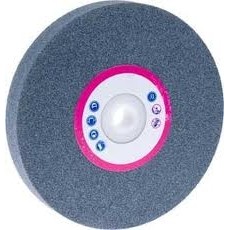
Things to Consider When Choosing Grinding Wheels for Metalworking
Choosing the right abrasive for your metalworking is an important step. Not only will it provide the best results, but it will also help to improve your productivity and cut costs. Making that choice can be difficult at times, due to the sheer number of abrasives available, so here are things to consider when choosing abrasives.
Which Type of Abrasive?
There are several types of abrasive, but some of the most popular ones include:
- Ceramic is one of the more rugged abrasives and is used in heavy metal removal.
- Zirconia Alumina is very useful for smoothing and medium metal removal.
- Aluminium oxide is a very common abrasive, favoured for its durability. It is an excellent abrasive for removing light layers of rust and for smoothing metal.
- Silicon carbide is popular for use on non-ferrous metals and metals like cast iron or ductile iron.
- Emery is excellent for polishing.
Which Wheel Shape?
Popular choices include:
- Straight wheel. The most common type, the straight wheel has the grinding face along the outer edge.
- Recessed wheel. Similar to the straight wheel, but with a recessed grinding face that allows it to fit on a flange assembly or machine spindle.
- Cylinder. This has the cutting edge along the side, as do cup and dish wheels.
- Mounted wheel. These are usually smaller, with specialized shapes.
Which Grit Size?
This refers to the actual abrasiveness. A lower number indicates a coarser grain, suitable for demanding tasks such as heavy removal or fast cuts. More detail-oriented jobs would benefit from a higher count, indicating a finer grain.
Coating
The coating refers to the bond that keeps the abrasive grains together. This is what allows them to cut more effectively, and it gradually wears away to reveal new, sharper grains.
One type of bond is an organic bond. This would usually be something like rubber or shellac. They can operate at high speed and are useful for jobs that require more precision.
Another type of bond is a vitrified bond, which is quite durable and excellent for use in harsh conditions and environments.
Grade
Abrasives are graded from A to Z, with A being soft and Z being hard. This is what determines several factors such as the wheels speed, feed rates, grinding depth, and even how tightly bonds can hold the abrasives. Softer grades work well on harder materials, and harder grades are suitable for softer materials.
Finding the right abrasive for your job takes a little bit of thought and is dependant on several variables, but it’s worth taking the time to get it right. If you have any questions, be sure to consult the experts at Skookum Tools, who will ensure that you get the right tools for the job!

 Posted by
Posted by

